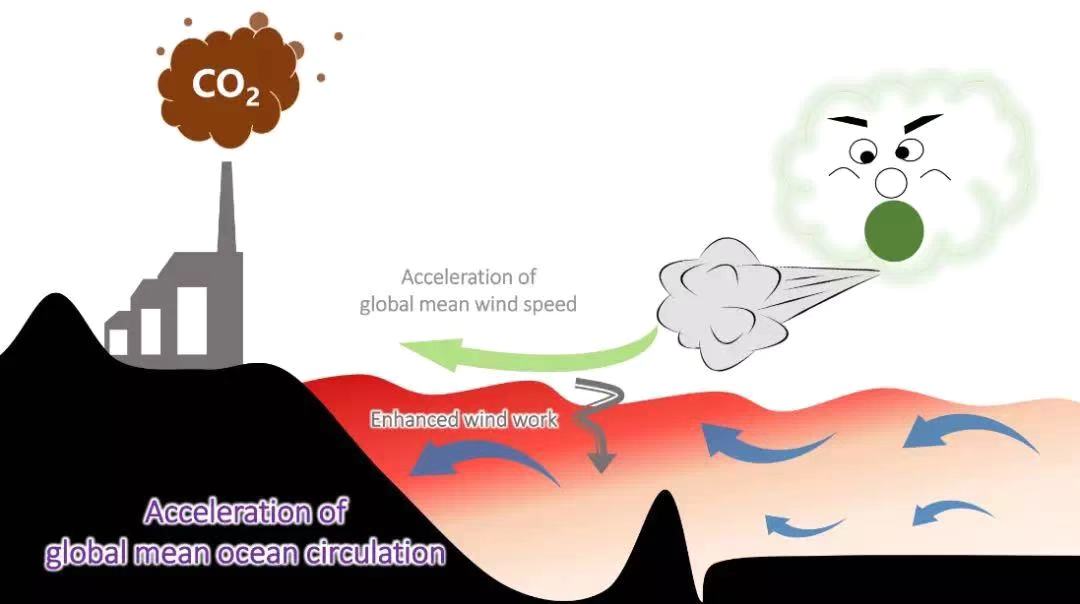
Newsroom
Large scale ocean circulation is the main dynamic process that redistributes ocean mass and heat. Increasing evidence suggests that continuous greenhouse gas emissions due to human activities give rise to Earth's energy imbalance and continuous ocean warming.
Because of internal dynamic processes and natural variability, ocean circulations in different regions have changed differently in response to global warming. The trend of the Earth's large-scale ocean circulation under global warming remains unclear due to the lack of systematic and continuous direct observations of the Earth's ocean circulation.
An international team led by scientists from the Institute of Oceanology of the Chinese Academy of Sciences (IOCAS) found that the global mean ocean circulation has accelerated over the past two decades. Their findings were published in Science Advances.

Fig. 1. Global distribution of linear trend of oceanic kinetic energy in the upper 2000 m layer. (Image by HU Shijian)
The research team used ocean circulation and wind speed products from multiple sources, including observations, reanalysis, model assimilations and numerical simulations, to investigate the changes in the patterns of global mean ocean circulation and global mean sea surface wind speed.
"We found that oceanic kinetic energy has significantly increased since the early 1990s, indicating a substantial acceleration of global mean ocean circulation. The trend is particularly prominent in the global tropical oceans and reaches depth of thousands of meters," said Prof. HU Shijian from IOCAS, lead author of the study.
The deep-reaching acceleration of the ocean circulation is mainly induced by a planetary intensification of surface winds since the early 1990s. Although the onset of a negative Pacific Decadal Oscillation after the late 1990s partially contributed to the changes in tropical wind and ocean circulation, the acceleration was likely additionally induced by external forcing related to continuous greenhouse gas emissions.

Fig. 2. A cartoon shows the acceleration of the global mean ocean circulation. (Image by HU Shijian)
"This is quite an exciting paper. I think the results are robust, important, and a little shocking," commented by Prof. Joellen Russell from the University of Arizona.
An acceleration of global mean ocean circulation may lead to enhanced heat and water mass transport and the water cycle in the ocean may be intensified as well. Heat in the upper layer may be transferred into the deep ocean more efficiently due to the deep-reaching acceleration of ocean circulation.
"It’s going to stimulate a lot of other work," said Susan Wijffels, a senior scientist from Woods Hole Oceanographic Institution.
This work was supported by the National Natural Science Foundation of China and the Key Research Program of Frontier Sciences, CAS.
